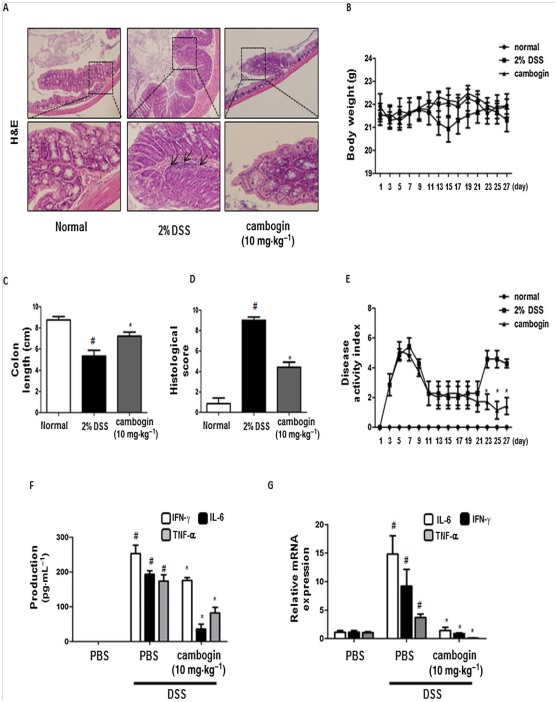On January 26th, the British Journal of Pharmacology online published the cooperation study "Cambogin suppresses dextran sulphate sodium – induced Colitis by enhancing Treg cell stability and function ", corresponded by Prof. Hong-xi Xu (Shanghai University of Traditional Chinese Medicine) and Prof. Bin Li (Shanghai JiaoTong University, Shanghai Institute of Immunology). The study revealed the regulatory function of Treg cells and inhibition mechanism of colitis of Cambogin, a natural small molecule compound isolated from Garcinia esculenta for the first time.
Regulatory T cells (Treg) are a type of T cell subtype with immunomodulatory functions and are closely related to the physiological pathological process of various major immune diseases, including autoimmune diseases, inflammatory reactions, acute and chronic infectious diseases, tumor immune tolerance, transplant rejection and allergic diseases. However, studies on the regulation of natural products on Treg cells are very limited. Under the guidance of Prof. Xu and Prof. Li, assistant professor Yue Lu, graduate students Na-mi Kim, Fu-xiang Zhu and Yi-wen Jiang worked together and found, under inflammatory conditions, cambogin could promote immunosuppression function of Treg cells by stabilizing the expression of Foxp3.This work demonstrated that the stabilization of Foxp3 by cambogin was achieved through the deubiquitination regulated by the deubiquitination enzyme USP7.The inhibitory effect of cambogin in chronic colitis in mice induced by DSS were further verified. It was confirmed that cambogin significantly stabilized the expression of Foxp3 and USP7 proteins in colon tissues, thereby promoting immunosuppressive activity in Treg cells. These results shown cambogin promoted the expression of Foxp3 and Treg cell function both in vitro and in vivo, which could provide a potential mechanism for developing a novel therapeutic agent for Treg cell associated diseases.
Prof. Hong-xi Xu and Prof. Bin Li’ group published series research papers in recent years (Lu Y et al, Biochem Pharmacol. 2016; Li Y & Lu Y et al, Nat Commun.2016;Lu Y et al, Br J Pharmacol. 2018), which revealed the active ingredients and biological activities of Chinese garcinia plants, discovered a series of compounds with significant anti-inflammatory activities and their immune regulatory mechanism, and provided a new theoretical basis for the development of new anti-inflammatory drugs.

By Yue Lyu
